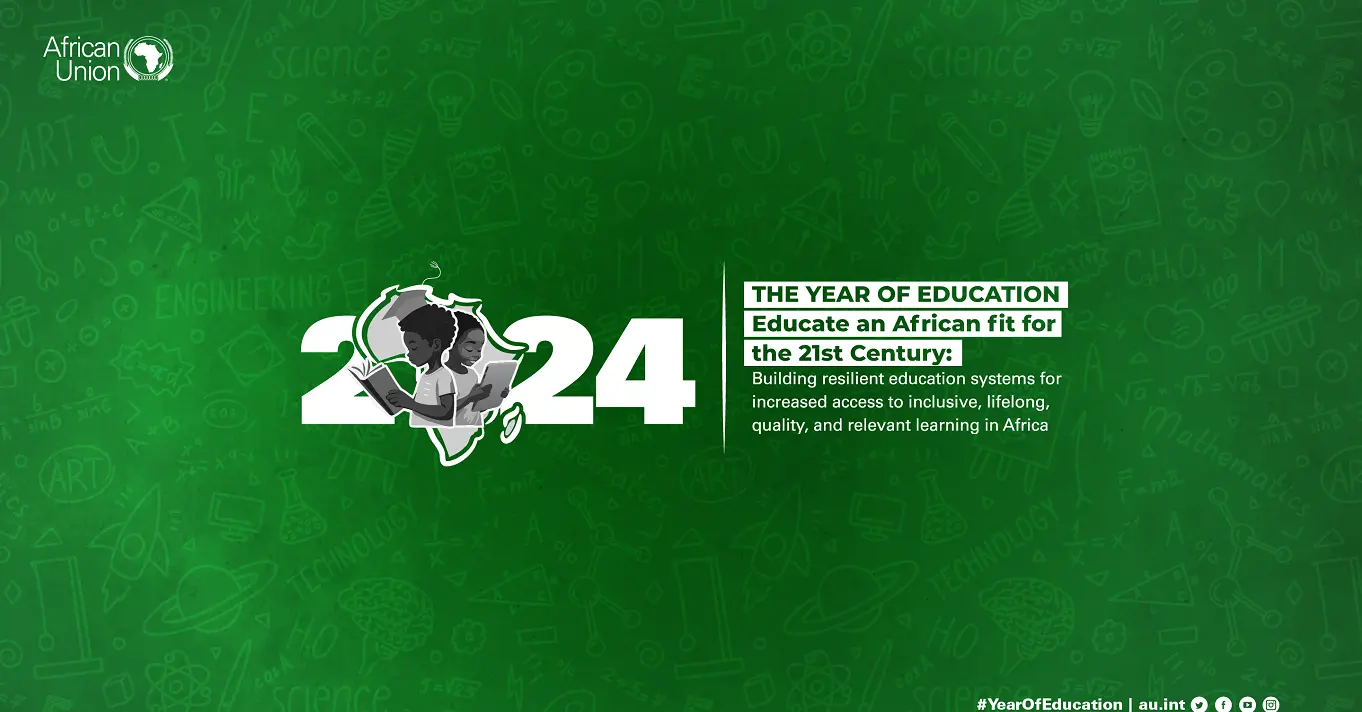Empowering Africa: The African Union's Year of Education 2024

In a landmark declaration, the African Union (AU) designated 2024 as the Year of Education. This initiative underscores the continent's commitment to accelerating progress towards Sustainable Development Goal 4 (SDG 4) and the Continental Strategy for Education in Africa (CESA). With a theme focused on "Educating an African fit for the 21st Century," the AU aims to foster resilient education systems that provide increased access to inclusive, lifelong, quality, and relevant learning opportunities across Africa. This article explores the significance of the AU's Year of Education and outlines the key areas where concerted efforts are needed to improve education outcomes on the continent. The efforts must be deliberate through action, policy, discussion, and even prioritization at the AU.
Enhancing Funding for Education
One of the fundamental challenges facing education in Africa is the issue of underfunding. Despite the critical importance of education in driving socio-economic development, many African countries struggle to allocate sufficient resources to their education systems. The AU's Year of Education presents a prime opportunity to address this issue by advocating for increased investment in education. Governments, international organizations, and the private sector must collaborate to mobilize adequate funding to support initiatives aimed at improving infrastructure, expanding access to quality education, and enhancing teacher training programs. By prioritizing education financing, African nations can lay a solid foundation for sustainable development and prosperity.
Investing in Infrastructure and Technology
Access to quality education is often hindered by inadequate infrastructure and limited technological resources, particularly in remote and underserved communities. To bridge this gap, the AU's Year of Education must prioritize investments in infrastructure development and the integration of technology in educational practices. This includes building and refurbishing schools, equipping classrooms with modern learning tools, and expanding internet connectivity to facilitate e-learning initiatives like Esoma Kids. By harnessing the power of technology, African countries can overcome geographical barriers and ensure that all learners have access to quality educational resources regardless of their location. Additionally, investments in digital literacy programs will empower students and educators to leverage technology for enhanced learning outcomes.
Retooling Human Resources in Education
A well-trained and motivated teaching workforce is essential for delivering quality education. However, many African countries face significant challenges in recruiting, training, and retaining qualified teachers. The AU's Year of Education presents an opportunity to retool human resources in the education sector through comprehensive teacher training programs, professional development initiatives, and incentive schemes to attract and retain talent. By investing in teachers, African nations can improve teaching standards, promote innovative pedagogical approaches, and ultimately enhance learning outcomes for all students. Moreover, efforts should be made to ensure gender parity among educators and to promote diversity and inclusivity in the teaching profession.
The African Union's declaration of 2024 as the Year of Education signifies a pivotal moment in the continent's quest for educational advancement. By focusing on building resilient education systems that prioritize access, inclusivity, and quality, the AU aims to unlock the full potential of Africa's youth and drive sustainable development. Through increased funding, investment in infrastructure and technology, and the retooling of human resources in education, African nations can create a conducive learning environment that equips learners with the skills and knowledge needed to thrive in the 21st century. As we embark on this journey towards educational transformation, let us harness the collective efforts of governments, educators, civil society, and the private sector to ensure that every African child has the opportunity to receive a quality education and realize their dreams.
